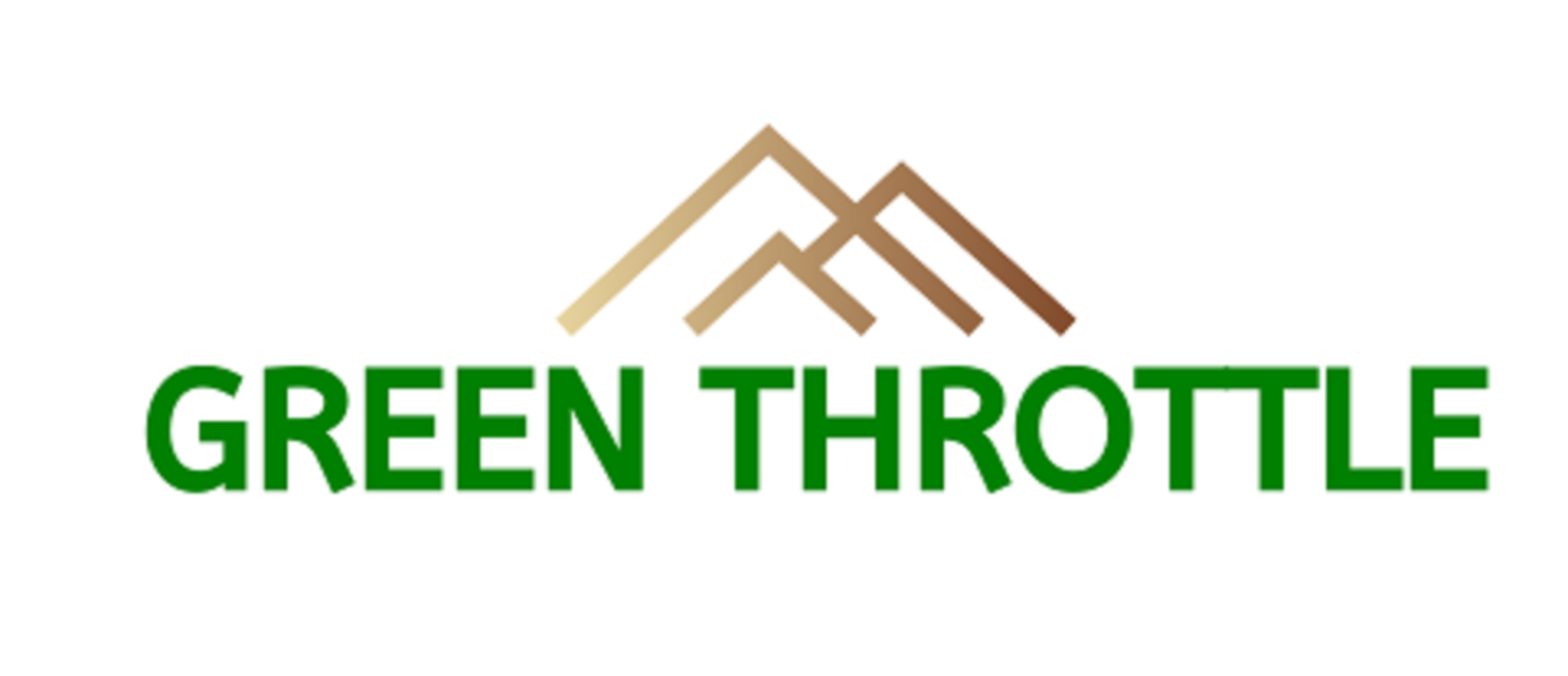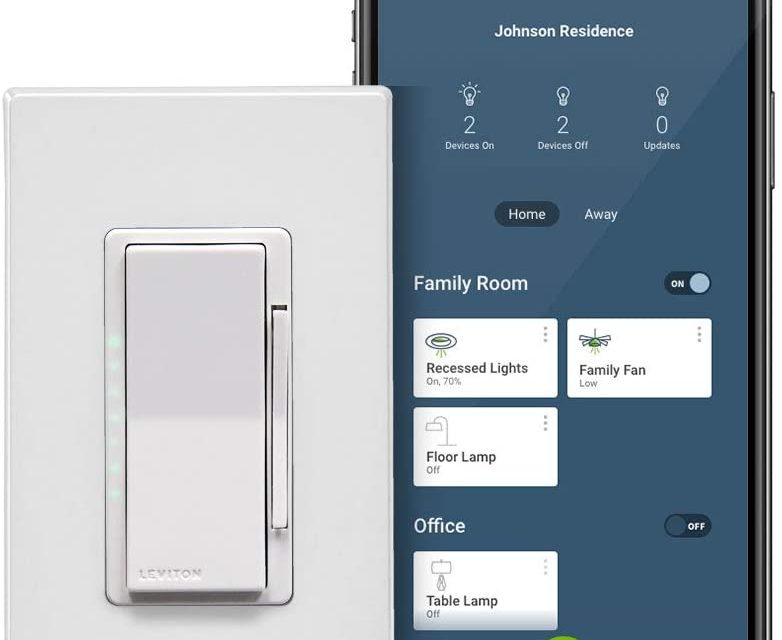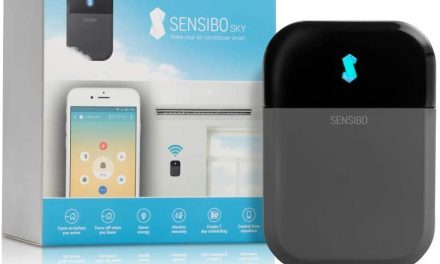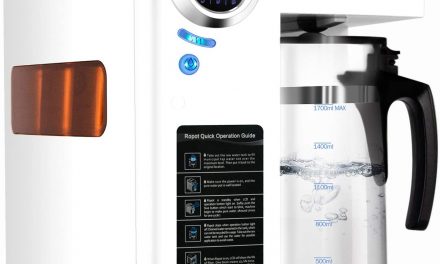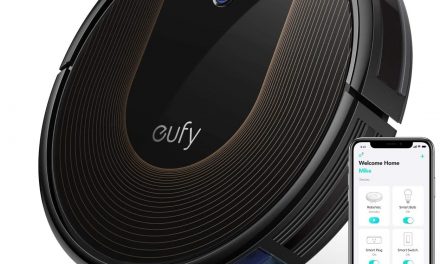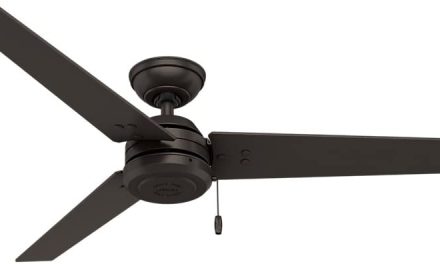The Lutron and the Leviton are excellent smart home automation systems for controlling your smart lights. They allow you to use IFTTT which makes task automation as easy as ABC, use wireless technology which means you do not need to worry about any hard wiring, support LEDs, CFLs as well as INC lights and work with the Google Assistant. The Lutron is Alexa compatible, comes with an easy to use mobile application and uses the reliable Lutron Clear Connect RF technology while the Leviton uses the popular WiFi technology, supports Alexa if you have a third party hub and supports IFTTT. Wondering which smart home automation system beats the other? We will compare the two devices against each other and help you to make a judgment as to which smart device best suits your needs.
Alternatively, just skip to either the Lutron or the Leviton on Amazon.
Table of Contents
Quick Comparison Table Lutron vs Leviton
| Lutron | Leviton | |
|---|---|---|
| Image |  | 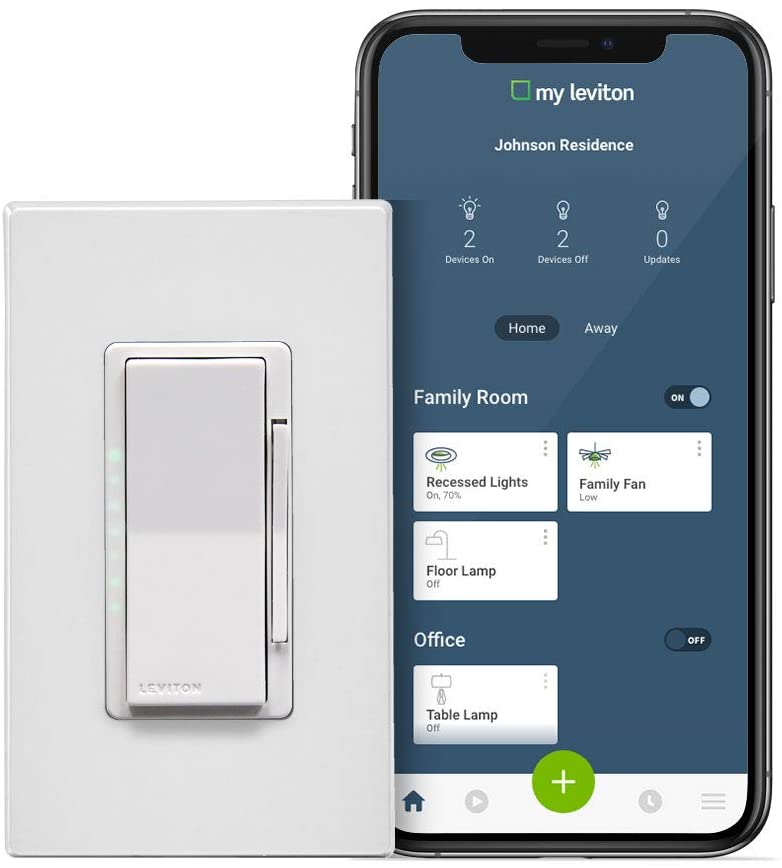 |
| Neutral wire required? | No | Yes |
| Alexa compatible? | Yes | Yes, if you have a third party hub |
| Google Assistant compatible? | Yes | Yes |
| Hub required | Smart Bridge Pro | No Hub |
| Supported loads | Up to 150 W dimmable LED/CFL or 600W INC/HAL | LED/CFL 300W; INC 600W |
| Typical application | For mobile device contol, scheduling lights, integration with other smart devices, etc. | In-wall; Dim & brighten lights |
| Mobile app included? | Yes | Yes |
| IFTTT support | Yes | Yes |
| Wireless technology | Proprietary Clear Connect RF technology | WiFi |
| Price | Check Price | Check Price |
Key similarities between the Lutron and the Leviton:
- Both devices can be used to control lights
- Both devices come with a mobile application
- Both devices support IFTTT
- Both devices are easy to install and setup
Key differences between the Lutron and the Leviton:
- The Leviton can work independently without a hub
- The supported loads are different
- The application of both devices is quite different
- Wireless technologies supported are different
A Comprehensive Comparison between the Lutron and the Leviton
1. Mobile Application
Back in the day, computers used to come with Compact Disks that would come with instruction manuals that would provide guidance on how to install and setup the product with great ease. This would help you to install new hardware devices that you would use with your computer. The same concept now applies to mobile phones. An application made by the manufacturer is usually provided to help you to set up the manufacturer’s device with ease. The Lutron and the Leviton both come with mobile applications to guide you through the installation process.
2. Installation
Both the Lutron and the Leviton where designed and developed to be easy to install. All you need to do is to download the Lutron or Leviton application (depending on which device you would have purchased.) After that, you follow the very simple to follow animated guidelines. These will help show you how to install the individual devices such as dimmers and thermostats.
3. Smart Hubs
Both devices support the use of smart home automation hubs. The Lutron needs to be used together with the Lutron Smart Bridge or the Lutron Smart Bridge pro. This will help you to control all the Lutron smart home devices. If you are a fan of Apple, you may be glad to hear that these smart bridges are compatible with the Apple HomeKit system. The Leviton was made to work independently. This means that it works right out of the box without any need to purchase any additional hardware. It can be integrated with the Wink or Samsung SmartThings smart home hubs. This makes it ideal for situations in which you do not have a hub but would like to incorporate one into your house later on.
4. Scheduling
The Lutron allows for you to create schedules and scenes. The Leviton also allows for you to do the same. This feature allows for you to do things such as to control your smart home devices to perform specific tasks at specific times or in sync with sunrise and sunset. The difference between the two is that the Leviton does not allow for you to set automatic tasks based on Geofencing. This means that you cannot automatically set your lights to be switched on when you arrive home. This is a disadvantage, but we do not see it as a deal breaker.
5. Neutral Wire
When installing home automation devices, it is important to consider whether the device that you would like to add needs you to have either a C-wire or a neutral wire. The Leviton needs you to have a neutral wire present. This means that if you cannot provide a neutral wire, perhaps, because it is not physically possible to do so then you may need to have a look at the Lutron. It does not require a neutral wire.
6. Load Capacity
The Lutron and the Leviton support different loads. The Lutron is able to support up to 150W dimmable Light Emitting Diode (LED) or Compact Fluorescent Lanterns (CFL). It can also support up to 600W incandescent (INC) or halogen (HAL) lights. The Leviton however can support up to 300W for Light Emitting Diode or Compact Fluorescent Lantern lights. It can also support up to 600W incandescent lights. This means that if you intend to use high capacity LED or CFL lights, then the Leviton will offer better performance.
7. Wireless Communication Technology
The Lutron uses proprietary clear connect RF technology. This technology allows for the Lutron to communicate with its other devices even when your home WiFi network is down. In addition, this means that the Lutron devices will not cause interference and end up slowing down your home WiFi network. The Leviton uses WiFi technology. It is important to note that the Leviton DZ- Series devices use Z wave, and the DW and DH series use WiFi. The Leviton DW series use uses the reliable 433 MHz Z-Wave protocol. This protocol has a host of features such as wide compatibility, reliability as well as a very good range, even with obstacles present. The current Leviton product that we are reviewing uses WiFi. This technology has a host of features such as: high speed, wide compatibility, easy to install and setup and it is reliable.
8. Devices Supported
Lutron comes with a limited number of devices that it produces. It only focuses on light switches and dimmers. This gives you a very limited number of devices that you can use if you choose to use Lutron. Leviton on the other hand supports a wider variety of products. Leviton offers dimmers, switches as well as outlets. This wider range of products allows you to gain more control over your smart home devices.
9. Voice Control
Both the Lutron and the Leviton allow you to use voice assistants to provide commands to them. You can use Alexa, as well as the Google Voice Assistant. This feature allows for you to quickly and easily input commands such as dimming lights or switching lights on or off. This feature has the main advantage that it is very easy to use and operate as speaking is something that is relatively easy for anyone to do.
10. Cost
The Lutron and the Leviton come at different price points. The Lutron smart home system comes at a rather hefty price tag. It is almost 3 times the price of the Leviton. This means that if you are concerned about forking out a huge sum of money, you can easily make a decision here.
Our Pick
We fell in love with the Leviton. This is because of the host of attractive features that it comes with. You can use some of its products without a hub. This means that you do not have to fork out money to buy an additional product, a smart hub, in order for you to get the most out of your product. It comes with an amazing 5 year warranty. In addition, it supports heavier LED and CFL lighting loads.
Why Do You Need a Home Automation System?
1. Voice Control
Home automation systems were designed and developed to make life easier for the user. This means that you will be able to reduce the amount of time and energy used for doing trivial tasks. For example, instead of getting up and switching your house lights on or off, you can simply use your voice to control your lights. Both the Lutron and the Leviton allow you to use voice control as they are compatible with the popular voice assistants which are: the Google Voice Assistant, Amazon’s Alexa.
2. Scheduling
The home automation systems usually come with scheduling systems. Such systems will allow you to create a custom schedule that best suits your needs. This means that you can make your lights automatically switch themselves on and off at a particular time on a set number of days. This means that you will not have to get out of bed just to switch off all the lights on a lazy Sunday. In addition, this results in energy savings.
3. Ease of Use
The smart home automation systems are made with the consumer in mind. A key feature found among these systems is ease of use. This means that the product must be very easy to use and virtually anyone must be able to use it quickly and easily. The Lutron and the Leviton are very easy to install and use.
Factors to Consider When Choosing Between the Lutron and the Leviton
1. Cost
The Lutron and the Leviton come at different price points. The Leviton comes at a price which is almost 1/3 that of the Lutron Smart Home System. This difference is quite significant if you are cash strapped and not currently willing to spend a large sum of money on a home automation system. If you are in a position in your life where money is not a problem at all, you can go for any of the two. If you want to buy the cheapest product available, then I believe that the answer is very obvious here.
2. Load Capacity
You need to have a look at how many lights are currently present at your house. In addition, you need to identify the technology that your lights use. If the lights are LED or CFL lights, then it is a good idea to go for the smart home system that supports the biggest load. The Leviton is able to support a load of up to 300W whereas the Lutron supports a load of just 150W. This is an astronomical difference. If, however, you intend to use incandescent light bulbs then any of the two options will do because they have the same load rating for incandescent light bulbs.
3. Neutral Wire
Most smart home devices need two types of wires. These are the C-wire and the neutral wire. Such wires are mostly absent in the older homes. The Lutron and the Leviton are different because the Leviton needs a neutral wire. This is not a problem at all if you are living in a modern home because such wires are present in most if not all modern homes. If you live in an old house then the Lutron may be the best option for you.
4. Smart Hub
The Lutron and the Leviton both support the use of smart hubs. The main difference that exists between the two is that the Lutron needs you to have a smart hub. Not just any hub but the the Lutron Smart Bridge or the Lutron Smart Bridge pro. These can then be connected to a smart hub such as the Apple HomeKit. The Leviton does not need you to have a smart hub at all. This is a huge advantage.
5. Wireless Communication Technology
Both the Lutron and the Leviton support different wireless communication technologies. The Leviton uses WiFi technology whilst the Lutron uses the proprietary Clear Connect RF technology. The WiFi technology uses 2 main bands. These are the 2.4 GHz band and the 5 GHz band. The 2.4 GHz band is heavily congested as microwaves, cordless phones, Zigbee devices as well as Bluetooth devices use this frequency band. It may be a good idea to go for the Lutron which has its proprietary Clear Connect technology if you are interested in rock solid performance.
Lutron vs. Leviton FAQs
Can I Use Voice Assistants?
Yes you can. The Amazon voice assistant, Alexa is supported by both devices. In addition, you can use the Google Assistant with both Devices.
Do I Need a Neutral Wire?
Yes, but only if you are using the Leviton.
Are They Easy to Install?
Both the products come with an application that gives guidance on how to install and setup your home automation systems. These steps are very easy to follow and you must not have any trouble following them.
Do They Support Scheduling?
Scheduling is indeed a feature that is supported by both systems.
Can I Use them with Smart Hubs?
Well yes you can. This allows you to get even greater customization.
Conclusion
In this article, we explored the similarities and the differences that are present between the Lutron and Leviton smart home automation systems. We declared the winner between the two to be the Leviton. This is due to the fact that it does not need you to have a smart hub for it to operate, it comes with an amazing 5 year warranty and in addition, it supports heavier LED and CFL lighting loads as compared to the Lutron.
We included a comprehensive list of features that you would need to consider when choosing between the two smart home systems. This will help you to choose the best system to suit your unique needs.
Check out the best smart home system, the Leviton on Amazon.
